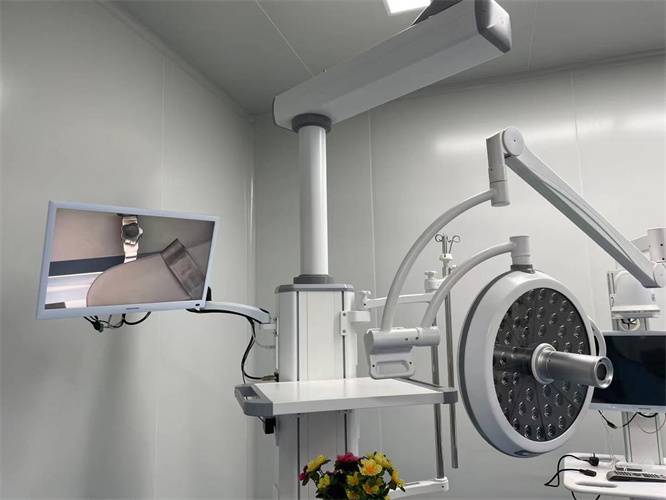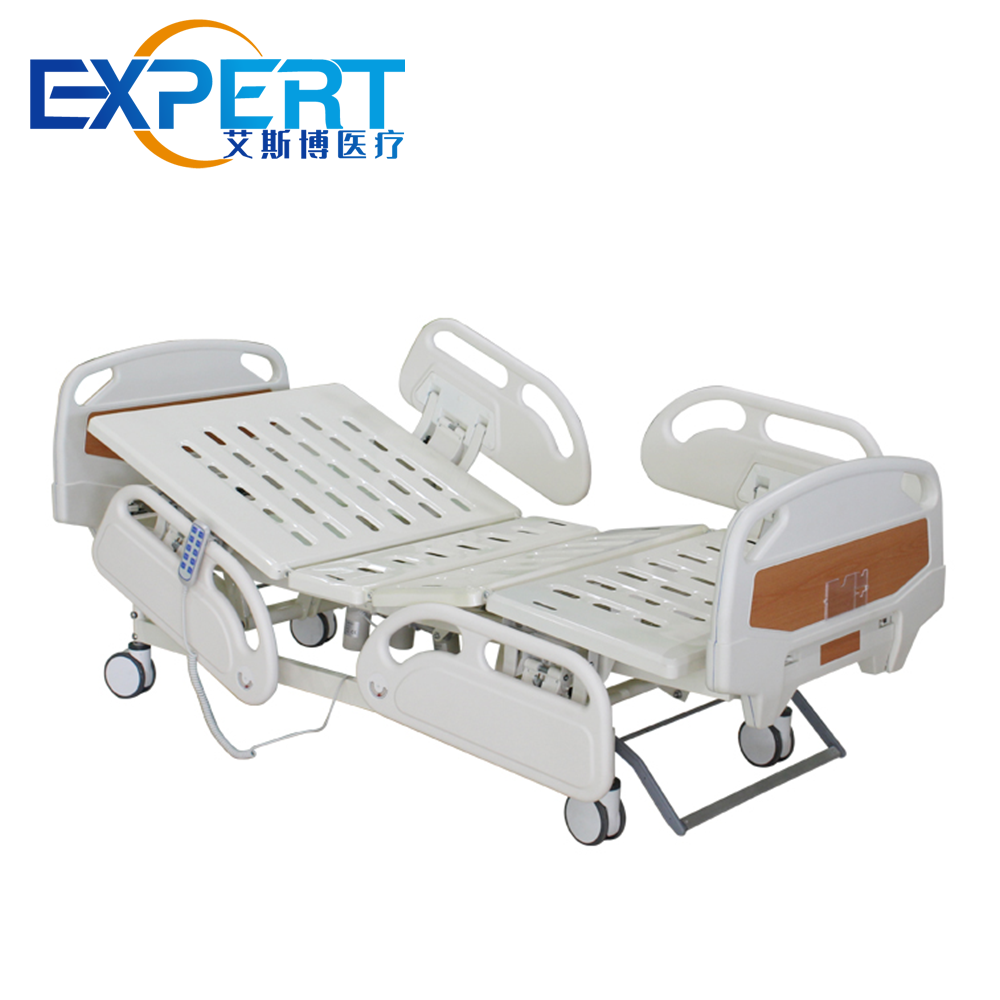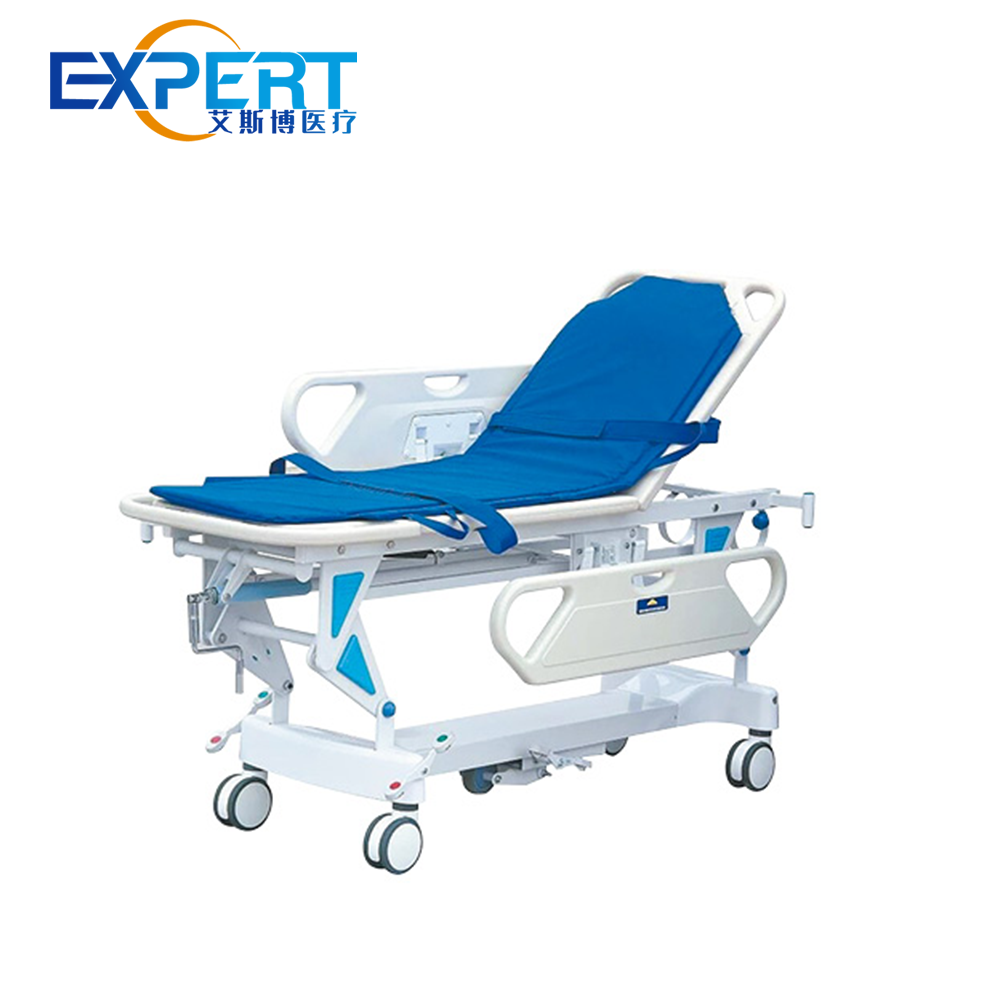Адрес
304 North Cardinal St.
Дорчестер-центр, Массачусетс 02124
Часы работы
С понедельника по пятницу: с 7:00 до 19:00.
Выходные: 10.00 - 17.00
Шаньдунская Группа Экспертного Медицинского Оборудования
Expert Medical Equipment Group, как один из самых профессиональных производителей и экспортеров медицинского оборудования в Китае, настаивает на предоставлении высококачественных, безопасных и надежных продуктов, а также лучших послепродажных услуг на мировом рынке.
Электрогидравлический, грузоподъемность 350 кг, по желанию заказчика может быть оснащен основанием из углеродного волокна.
Цветовая температура, бестеневой, высокий индекс цветопередачи, подходит для общей хирургии, кардиоторакальной хирургии и нейрохирургии.
Пять функций отделения интенсивной терапии, опциональное взвешивание всей кровати, проведение сердечно-легочной реанимации одним нажатием, антибактериальное покрытие.
Централизованное управление газом и электроэнергией, вращение на 360°, грузоподъемность более 120 кг, ядро рабочей станции операционной.
28 старших инженеров | Комплексное проектирование конструкции/оптики/электрического управления. 22 проверки перед тем, как каждое устройство покинет завод | Скорость ремонта < 1%.
Центр лазерной резки | Автоматическая линия распыления | Сборочный цех с защитой от пыли на 10 000 уровней. Годовая производственная мощность: 50 000 хирургических светильников и 30 000 операционных столов.
Круглосуточная поддержка | Детали доступны в течение 72 часов | Пожизненная техническая поддержка. Несколько зарубежных складов по всему миру для доставки в кратчайшие сроки.
Располагаясь в Цзине, крупнейшем в мире центре хирургического оборудования, мы ежегодно поставляем более 100 000 комплектов операционных столов, хирургических светильников и коек для отделений интенсивной терапии в более чем 70 стран.

МЫ ЛЮБИМ ТО, ЧТО МЫ ДЕЛАЕМ
Лучше быть хорошим специалистом в одном деле, чем в среднем в нескольких отраслях.
Наша команда разработчиков и производителей медицинского оборудования хорошо осведомлена о потребностях пациентов и врачей. Поэтому мы уверены, что являемся экспертами в области медицинского оборудования.
Мы являемся одним из ведущих производителей высокотехнологичного медицинского оборудования, продукция которого широко распространена в больницах и клиниках по всему миру и поддерживается обширной сетью дистрибьюторов.
Все этапы производства нашей продукции находятся под строгим контролем, и каждый этап подвергается тщательному и профессиональному контролю качества и тестированию. Все продукты практически идеально подходят для использования в медицинской практике.
Помимо основного хирургического операционного оборудования и больничных инструментов, мы также производим и поставляем медицинское диагностическое оборудование, цифровые устройства для лечения и восстановления и другие серии продуктов, сотни разновидностей и спецификаций для удовлетворения различных требований. остановить поставщика решений для медицинского оборудования.
Как профессиональный универсальный производитель медицинского оборудования, EXPERT MEDICAL владеет интегрированной цепочкой поставок, чтобы предоставить полный спектр услуг по медицинскому оборудованию для операционных, отделений интенсивной терапии, учреждений первичной медико-санитарной помощи и т. Д., С использованием современных технологий производства и строгого контроля затрат, которые мы поставляем самые экономичные продукты для всех наших клиентов.

От хирургических светильников, операционных столов, медицинских потолочных вышек, коек для отделений интенсивной терапии до тележек, носилок и реабилитационного оборудования — более 200 спецификаций доступны в одном месте, что устраняет необходимость для больниц обращаться к нескольким поставщикам.
Более 30 технических патентов, ежегодно выпускается 3–5 новых продуктов; сотрудничество с ведущими больницами для проведения клинических испытаний с целью обеспечения решения реальных проблем при каждом обновлении.
Круглосуточная удаленная техническая поддержка; несколько зарубежных складов запасных частей с доставкой деталей на место в течение 96 часов; используется больницами более чем в 70 странах, уровень повторных закупок составляет 78%.
Мы понимаем первоначальное намерение и причины, по которым клиенты изготавливают медицинское оборудование по индивидуальному заказу, поэтому мы можем предоставить наиболее подходящее оборудование. У нас есть профессиональная команда по исследованиям и разработкам, которая разрабатывает и соответствует запросам различных клиентов о индивидуальном медицинском оборудовании и предоставляет продукты с различными спецификациями в соответствии с различными запросами, чтобы обеспечить более высокую эффективность работы. Теперь сообщите нам ваши запросы на настройку, чтобы предоставить вам наиболее профессиональное оборудование и товары.


Компания EXPERT MEDICAL стремится установить надежную систему качества на протяжении всего процесса производства медицинского оборудования. За эту основную ценность мы несем ответственность как за наших клиентов, так и за всю отрасль.
Explore our guide to operation tables, covering types, features, and...
Читать далееИзучите преимущества и типы при выборе потолочных хирургических систем...
Читать далееУзнайте о преимуществах, функциях и советах по выбору мобильного хирургического оборудования...
Читать далееУзнайте о характеристиках, преимуществах и руководстве по выбору медицинских подвесок....
Читать далее
Операционные столы серии Expert Medical полностью соответствуют требованиям общей хирургии, сердца, головы, шеи, грудной полости и других хирургических операций.

Операционные лампы серии Expert Medical используются в различных областях хирургического освещения и в системах вспомогательного освещения.

Специалисты-медики предоставляют различные типы больничных кроватей для интенсивной терапии и медсестер, которые действительно имеют красивый дизайн и долговечны в использовании.

Будь то повседневная медицинская помощь или операция, хирургические тележки Expert Medical помогут вам работать более эффективно.

Носилки Expert с разнообразными конструктивными и функциональными характеристиками обеспечивают прочную поддержку при спасательных операциях и транспортировке пациентов.

Другие медицинские устройства Expert Medical работают вместе, чтобы помочь построить целостную медицинскую систему.
Мы стремимся предоставить клиентам универсальную модель продаж; Мы уделяем более важное внимание удовлетворению потребностей наших клиентов.
